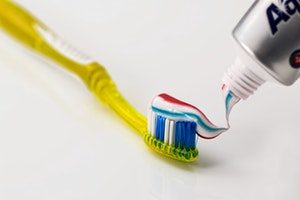 For those of you who feel more comfortable using a manual toothbrush, we have some good news….
For those of you who feel more comfortable using a manual toothbrush, we have some good news….
Evidence suggests that a manual toothbrush can be as equally effective at maintaining good oral health provided that you adopt a good technique and brush both frequently and sufficiently.
While that might not come as much of a surprise to some, perhaps what is more surprising is the array of toothbrushes on offer – particularly with regards to bristle type. Soft, medium, hard – which one should you choose? Our dentist explains…
Be prepared for change
Did you know that the bristle type you choose should really depend upon your oral health circumstances at the time? In other words, you should choose your bristle type to suit your needs or requirements. This may depend on whether you currently have sensitive gums, sensitive teeth, or are undergoing orthodontic treatment. Let’s take a closer look…
Extra soft manual toothbrushes
Extra soft brushes are also known as periodontal brushes and although they have become less prevalent in stores over recent years, they’re the ideal toothbrush of choice for those suffering from conditions like
- Receding gums
- Gum disease and
- Severe gingival problems
So if your teeth require a gentler approach to cleaning, then an extra-soft toothbrush is a good fit. If you’re in any doubt about their effectiveness, don’t forget to ask your dentist. You can even ask for tips on better brushing techniques to ensure you get the most out of the brush, without it causing any damage or discomfort.
Soft-bristled toothbrush
Contrary to popular belief, a soft toothbrush has the ability to get your teeth as clean as a hard-bristled toothbrush and much of the difference lies in the brushing technique. Even though plaque is a tricky substance to remove, it really isn’t about how hard you brush. Instead, it’s about how you go about it.
Try angling your manual toothbrush bristles towards the gum line and use gentle circular massaging strokes. Keep the pressure regular but light. Did you know that any firm or hard brushing – even with a soft toothbrush, can and will result in many of the same problems you’d get from using a medium or hard brush?
Because of the fact that soft manual toothbrushes do a good job in removing plaque – and – are unlikely to cause damage, many dentists including the team here at 44 Dental Care recommend them.
One caveat though….
Buy the best manual toothbrush you can from industry recognised names like Colgate and Oral B. They are usually better designed and better equipped for the job. Don’t be tempted to buy a pack of toothbrushes just because they happen to be dirt cheap.
Medium-bristled toothbrushes
Medium-bristled toothbrushes are the most commonly sold type in our stores today. Arguably, this is because many people don’t really know what type of toothbrush they should really be using – and because of this – they tend to take the safe middle option.
But while one study, in particular, suggested that medium-bristled toothbrushes have the ability to remove more plaque from the molar area than their softer-bristled cousins, they were also found to cause more dental abrasions, particularly around the gingival margin.
If you are brushing as often as you should be, then you do need to be aware that long-term use of a medium-bristled toothbrush can be problematic over a period of time.
Hard-bristled brushes
While no dentist recommends the long-term use of a hard toothbrush, they may have their uses. Some smokers, for instance, prefer to use them in conjunction with softer brushes to eradicate unpleasant staining. While others may use them for cleaning dentures. There is no clear evidence however to suggest that they fare any better than other bristle-types and patients need to be aware that they may, in fact, be doing more harm than good.
The key-takeaway
Manual toothbrushes containing hard and medium bristles should be used with caution. This is despite the fact that many people still use them. The recommended toothbrush of choice -and the one most likely to keep your teeth and gums healthy without causing any damage – is a soft-bristled toothbrush. However, for best results, look to buy a toothbrush from a well-known brand. They will last longer and are better engineered to provide maximum cleaning capability.
Are you ready to make the manual toothbrush switch?
Talk to our dental team at 44 Dental Care. We will give you all the information you need to make an informed decision and help you to maintain optimum oral health in the process. Call us today on 0116 251 9647 to book an appointment.
Share
AUG
